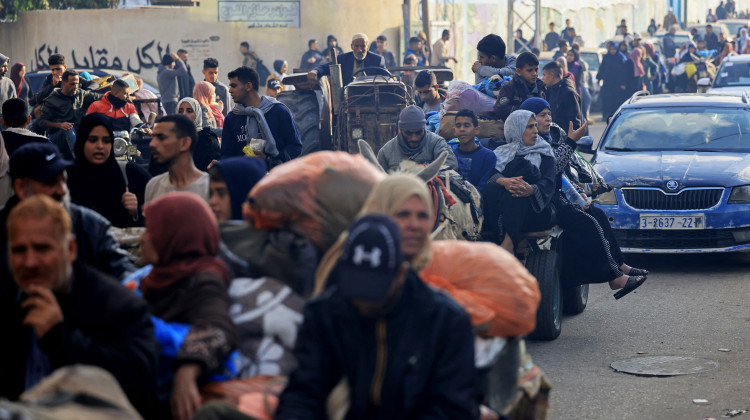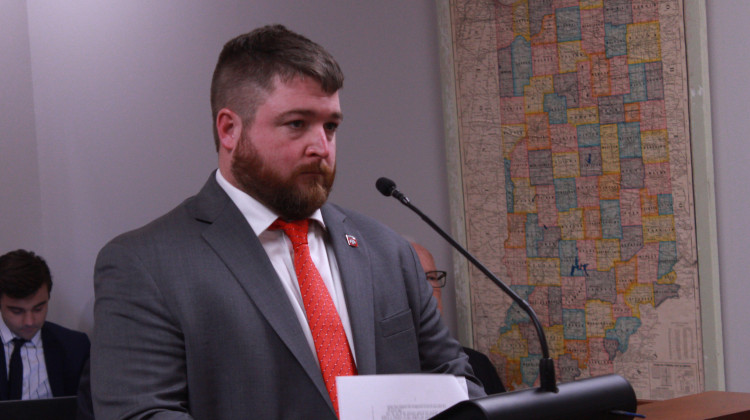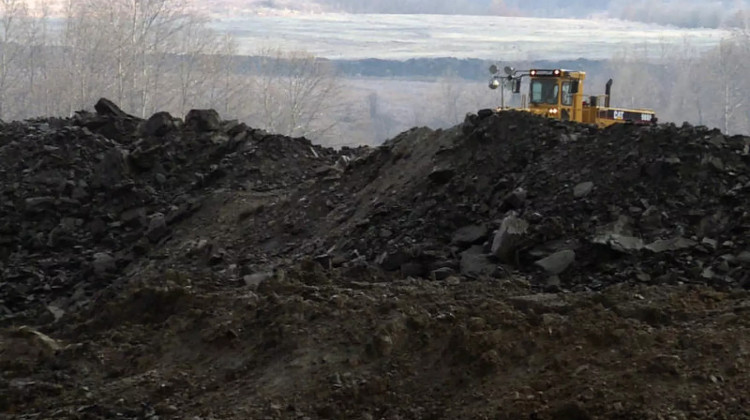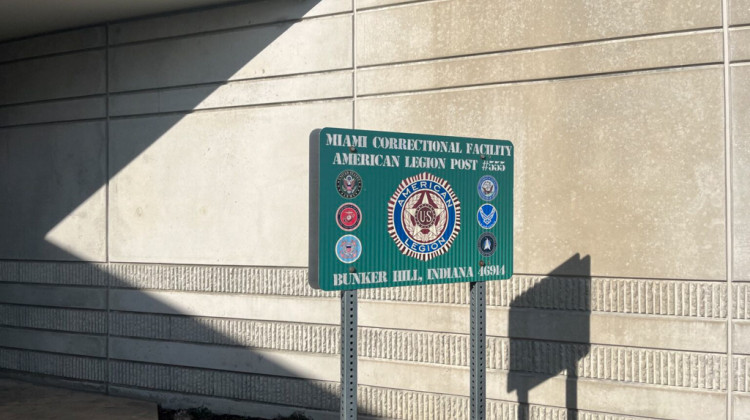
Palestinians mourn their relatives killed in the Israeli bombardment of the Gaza Strip, in the hospital in Khan Younis, Saturday, Dec. 2, 2023.
(AP Photo/Fatima Shbair)By Becky Sullivan, Brian Mann
TEL AVIV, Israel — For seven days, the people of Gaza could stand in long lines waiting for water, cooking gas and bread, without fear of an incoming airstrike. Hospitals could treat the injured without worrying about new strikes sending additional patients their way. Aid groups delivered tens of thousands of tons of aid across the territory, including in Gaza's north, where fighting had been too intense to safely distribute it.
But on Friday, a week-long ceasefire — brokered to allow the exchange of Hamas-held hostages and Israeli-held Palestinian detainees — came to an end after both sides accused the other of violating the terms of the truce. So too did aid groups' hopes of a longer-term pause to address the worsening humanitarian situation for the 2.3 million residents of Gaza, about 80% of whom are estimated to be displaced from their homes.
"This is a man-made catastrophe. It looks like an earthquake, a famine and a massive epidemic," said Dr. Margaret Harris, a spokesperson for the World Health Organization, in an interview with NPR before the fighting resumed. "The only logical answer is a true ceasefire."
The week-long pause in fighting had allowed the delivery of thousands of tons of food and water, nearly 150 tons of medical supplies and roughly 30,000 liters of fuel to shelters operated by the United Nations in the north of Gaza, the U.N. said. Ambulances ferried critically wounded patients to Egypt.
The break in fighting also allowed several hospitals in northern Gaza to re-open for limited services. Officials in Gaza warned that the open hospitals would be unable to receive large numbers of wounded once fighting resumed. Nearly 20 other hospitals remained closed.
Even in the south of Gaza, where some fuel and medical supplies have been more frequently delivered, medical facilities remained overwhelmed, hospital staff told NPR.
"The condition at this hospital is so bad because we are loading everything on our shoulders," said Dr. Mohamed Yasouri, an emergency room physician at Nasser Hospital in Khan Younis. "We can save life or save organs if we have enough medical equipment," he added — but they don't.
But the pause did little to improve access to water for northern Gaza. A lack of fuel and damage to infrastructure kept water production facilities shut, humanitarian groups reported, leaving small U.N.- or privately-operated wells as the primary sources of potable water in the north.
And the supply of other critical goods — like cooking gas — remained limited.
Before the pause, about 20 trucks of aid were being delivered into Gaza each day via the Rafah border crossing with Egypt.
But aid organizations, including the U.N., reported that no humanitarian aid had been allowed into the territory Friday.
The Palestinian Red Crescent Society, a humanitarian group, said Friday that Israeli forces had told aid groups that the entry of aid trucks from Rafah would be "prohibited, starting from today until further notice."
"This decision exacerbates the suffering of citizens and increases the challenges facing humanitarian and relief organizations in alleviating the hardships of citizens and displaced persons due to the ongoing aggression on the Gaza Strip," the group said.
In response, Israeli officials said that trucks would be allowed into Gaza. The White House was also optimistic that a flow of aid would begin again, National Security Council spokesperson John Kirby said Friday, though "probably in terms of dozens of trucks, versus hundreds of trucks," he added.
As many as 1.8 million Palestinians are thought to be internally displaced since the Oct. 7 Hamas attack on Israel that left 1,200 dead, according to Israeli officials. In the weeks since the attack, the Israeli offensive in Gaza has resulted in at least 13,300 deaths, according to the Palestinian Ministry of Health, and led aid groups to warn that overcrowding and deteriorating sanitary conditions are heightening the risk of infectious disease.
More than a million people are registered with shelters run by UNRWA, the U.N. aid agency for Palestinian refugees. The shelters are designed to accommodate 1,500 people each, but currently there are, on average, about 6,000 at each one, U.N. officials say. At one UNRWA school-turned-shelter, officials reported an outbreak of hepatitis A.
"To give you an example, we're averaging 125 people using one toilet. So basic things like sanitation in these shelters is very difficult. People are jammed into very congested classrooms in the evenings," said Thomas White, the director of UNRWA in Gaza, in an interview with the BBC.
This week, the World Health Organization warned that untreated disease could ultimately kill more people in Gaza than bombings if the territory's health infrastructure is not restored. Officials report tens of thousands of cases of respiratory infections, diarrhea and skin rash — and attributed the outbreaks to overcrowding, a lack of food, water, sanitation and basic hygiene and challenges with waste management.
"We need a ceasefire. A ceasefire that holds," WHO Director-General Dr. Tedros Adhanom Ghebreyesus said Friday after the airstrikes resumed.
By sundown, hundreds of strikes hit targets across Gaza, including in the south, the Israeli military reported. The Gaza Ministry of Health said nearly 180 people were killed and nearly 600 others injured.
Shaimaa Ahmed, 20, a computer engineering student sheltering in central Gaza, told NPR on Friday that the renewed fighting felt "suffocating."
"We really thought we couldn't bear it anymore if this thing started again. We've already seen enough. We've already gone through enough," Ahmed said. "But apparently it wasn't enough for them."
9(MDAyMzk1MzA4MDE2MjY3OTY1MjM5ZDJjYQ000))
 DONATE
DONATE






 Support WFYI. We can't do it without you.
Support WFYI. We can't do it without you.